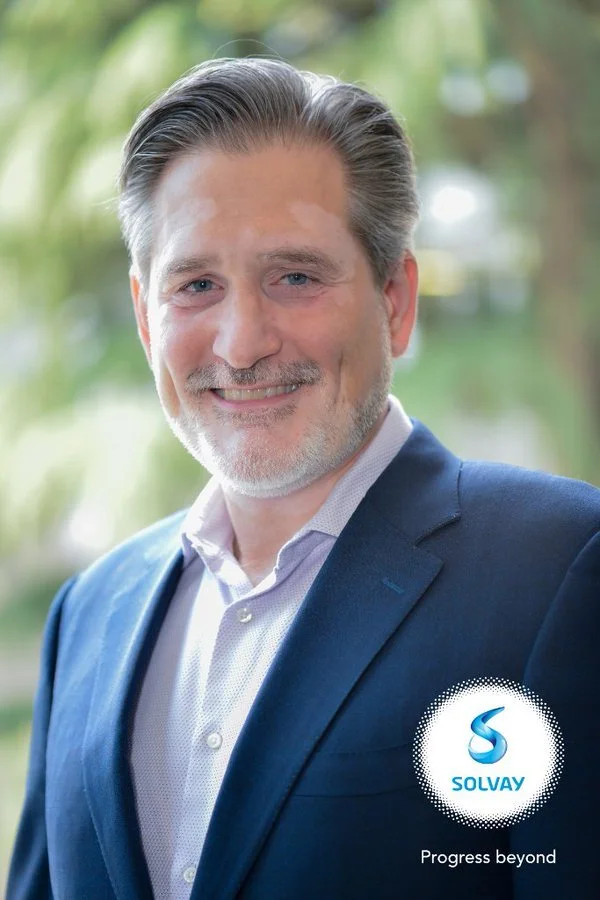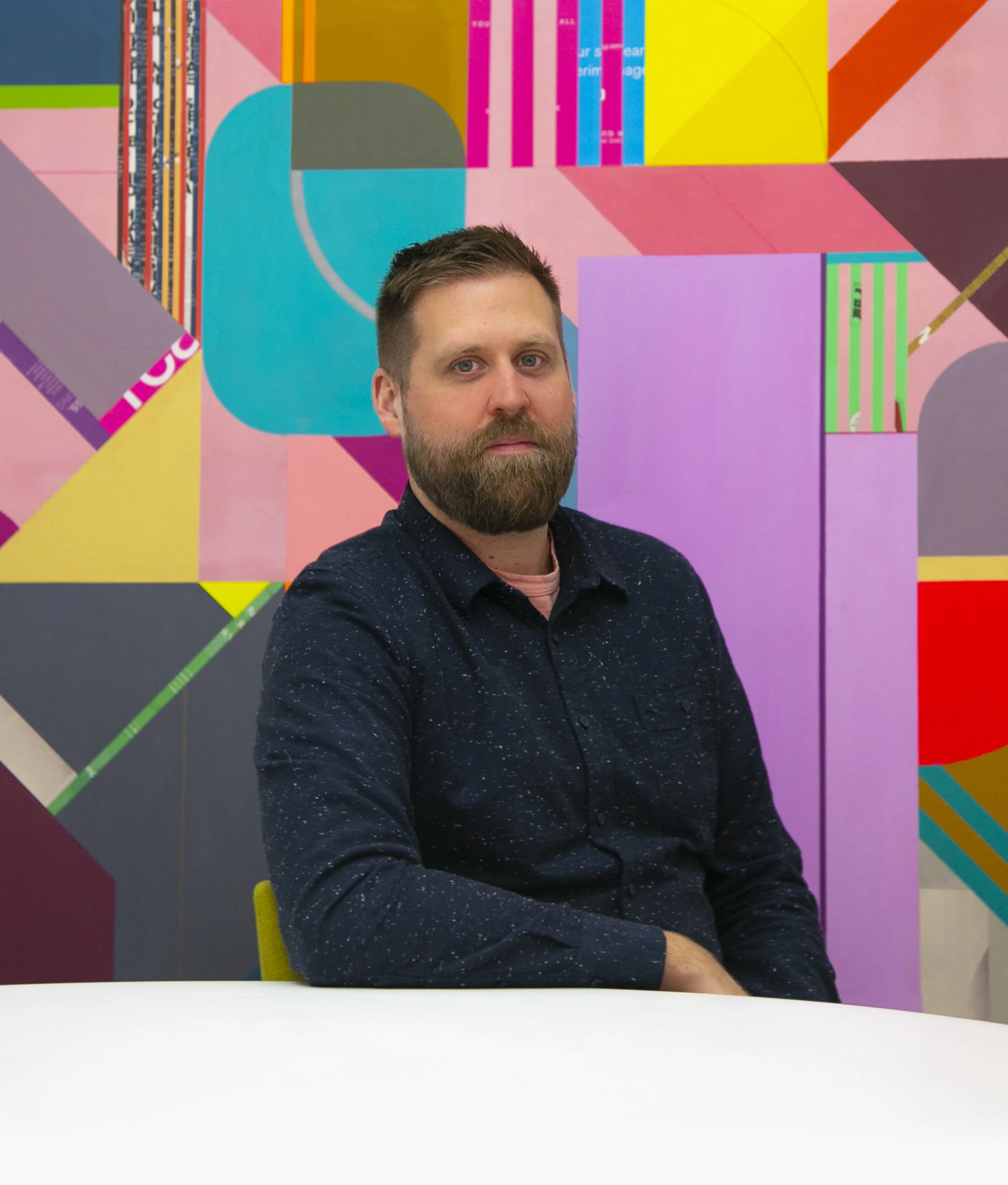Mike Finelli discusses his role as President of Solvay Growth Initiatives and Chief North America Officer, his insight into sustainability and how it is driven by consumer demand, and the effect of the COVID-19 pandemic on the need for sustainable solutions.
Kevin Tubbs, Vice President and Chief Ethics, Compliance, and Sustainability Officer of Oshkosh Corporation, shares his journey from studying engineering to leading corporate social responsibility efforts at a Fortune 500 company. He discusses creating a mindset around sustainability within an organization, demonstrates leading during the pandemic, and shares advice for young professionals on making a positive impact throughout one’s career.
Read MoreIn this Design Nation interview, Clark Goolsby, Chief Creative Officer at Chase Design Group, shares how he started his design career at Chase and is a leader at this agency that focuses on innovative brand-building. He believes the biggest challenges facing his industry today are the shift in consumer behaviors brought on by the pandemic, navigating the intersection of art and business, and sustainability.
Read MoreSummer Journalism Fellow Maryam Gamar analyzes the court ordering of the shutdown of the Dakota Access Pipeline (DAPL), which took place in July 2020. She points out how instances of environmental racism, such as DAPL’s construction across the Standing Rock Sioux Reservation, are subjecting Native American and other BIPOC communities to deadly health consequences. In particular, Gamar argues that environmental racism includes a power imbalance between corporations and communities of color that puts these communities at a disadvantage and keeps them there.
Read MoreHakan Bulgurlu is the head of Arçelik, a leading global manufacturer of home appliances, where he has been CEO since 2015. His vision turned Arçelik into an Industry Leader in the Dow Jones Sustainability Index and saw the company included in the FTSE4Good Index for four consecutive years. This interview with Sam Harshbarger analyzes how public trust and leadership encourage inclusive, sustainable, and responsible business practice.
Read MoreMission statements can either be inspiring and guiding, or they can be a collection of words put on the ‘About Us’ section of the website that are never referred to again. However, a company’s explicit assertion of their goals can actually help guide them directly towards sustainable, responsible practices.
Read MoreIn recent times, consumers and investors have started to pay a lot more attention to the sustainability of the products they buy and the companies they decide to support. While this is a good thing, it gives rise to something dangerous. Greenwashing can distract people and mislead them into thinking that climate goals and sustainability targets are being met, and so we must be up on our guard to recognize greenwashing and how companies can avoid it.
Read MorePublic service and resilience have been at the heart of Amanda North’s career as Founder & CEO of Plan C Advisors. In her interview with Summer Journalism Fellow Anastasiia Tokar, North describes the role of purpose in strategic entrepreneurship and key steps for the corporate world to prioritize meaningful climate action in their business models, emphasizing the need for stable environmental policy in facilitating the transition towards a sustainable future.
Read MoreTaking on the role of Food Justice Organizer for the Missouri Coalition for the Environment in 2018, Tosha Phonix has utilized her platform to be a beacon for Black growers in and around St. Louis to turn to. From supporting Promise Zone residents through the Neighborhood Leadership Fellows program and Neighborhood Leadership Academy to spearheading various initiatives like the Food Equity Advisory Board which brings together community leaders in the fight for food justice, Tosha’s work has been influential in promoting community development through improved access to fresh, healthy food.
Read MoreToday, ed-tech is an umbrella term that refers to any technological initiative designed to streamline learning. Despite this, startups in the space have had a rocky ride over the past half-decade with investors and skeptics raising questions about their cash burn, business models, and even their crown jewel: content. The black swan event that is COVID-19 has seen educational institutions and students flock to ed-tech platforms during the transition to online learning, but this begs the question: is ed-tech here to stay once the dust settles?
Read MoreIn these times of upheaval and uncertainty, we can be certain of one thing: the world must continue moving towards sustainable energy sources. Summer Journalism Fellow Dean Lee Sammanthan describes how one Danish company rose to the top against all odds in the wind power market and is now preparing for the global pivot to renewables in the wake of COVID-19.
Read MoreGreg Steltenpohl, founder and CEO of Califia Farms, explains how his interest in “the integration of people and environment” drives his long-term commitment to creating products that promote better health. He also shares how Califia has strengthened its brand by maintaining its pledge to produce with completely vegan ingredients, aligning products with its brand values, and carefully considering the archetypes of its products. In addition, Greg predicts whether we’ll see more people commit to a plant-centric diet in the near future.
Read MoreNorman Augustine, former CEO and Chairman of Lockheed Martin Corporation, explains the aerospace industry’s role in national defense and systems integration and economic sustainability in the human spaceflight program. Drawing upon his past experience on the board of Proctor & Gamble, he also elaborates further on some marketing and branding successes and failures.
Read MoreReflecting on his experiences growing up in an agricultural family and studying renewable energy in grad school, Nick Halla shares his thoughts on the success and expansion of the Impossible Burger, how consumers can push the food industry to become more environmentally friendly, and Impossible Foods’s mission to help people around the world access better food with lower environmental impact.
Read MoreSince 2018, China has closed its borders to the wave of trash generated by the West, forcing Americans to reconsider the problem of waste and shift towards a more sustainable future via the principles of Reduce, Reuse, and Recycle.
Read MoreDan Abramowicz is Crown’s Chief Technology Officer with global responsibility for innovation and technology development across Crown’s business platforms. Before joining Crown, Dr. Abramowicz was a Technical Director in GE’s Global Research Center, responsible for innovation and technology.
Read MoreAmidst the growing urgency to address the global climate crisis, many fashion retailers are seeking to lessen their environmental footprints. However, sustainability in fashion relies not only on sourcing, but also on changing consumer attitudes towards clothing.
Read MoreKaren Raskopf, Chief Communications & Sustainability Officer at Dunkin’, talks about being proactive on the job, building an authentic brand, and promoting sustainability in Dunkin’ stores and coffee.
Read MoreAs glamorous as the world of fashion may seem, there are many serious issues that plague the industry. Only through making drastic changes that keep the plight of other humans and the Earth in mind can companies start to create a more positive impact in the world of fashion.
Read MoreIn recent years, consumers have called for companies to focus more on sustainable fashion rather than fast-fashion. A study administered by the International Association for Research and Testing in the Field of Textile Ecology, found that “60 percent of millennials are interested in certified sustainable clothing.” However, only 37 percent of millennials actually purchase sustainable goods.
Read More



















